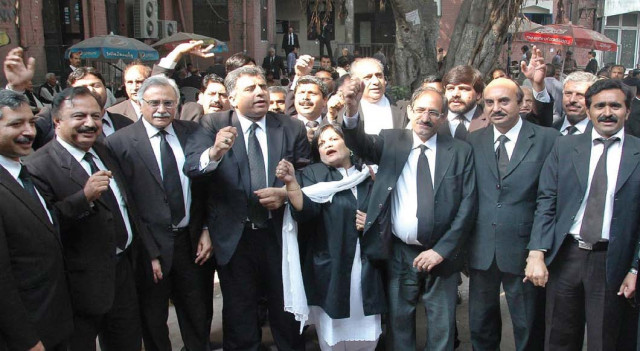The men in black coats
During the height of its activism, the lawyers’ movement was lauded as a mass movement that brought down a dictator.

The less savoury aspects of the lawyers’ movement became apparent in April 2008 when, instead of continuing with their peaceful protests, they thrashed the Musharraf regime’s apparatchik Sher Afghan, and this too over the protests of Aitzaz Ahsan, the symbolic leader of the movement. On that day, the non-violent gathering turned into a mob. Later it became apparent that a large proportion of the movement protested against Musharraf not because of democratic ideals but simply because they couldn’t stand his alliance with the US. The nadir of the lawyers came when Mumtaz Qadri, the confessed killer of Punjab governor Salmaan Taseer, was greeted with rose petals as he made his way to court.
The fault is partly ours for putting the lawyers’ movement on a pedestal. Before the movement, lawyers in Pakistan never had a good reputation per se. None of this is to say that the lawyers should not have been supported in their quest to restore Justice Iftikhar Chauhdry, a just cause if ever there was one. But we should have subjected them to greater scrutiny. Hopefully we have learnt our lesson — the enemy of our enemy doesn’t always turn out to be our friend.
Published in The Express Tribune, November 5th, 2011.















COMMENTS
Comments are moderated and generally will be posted if they are on-topic and not abusive.
For more information, please see our Comments FAQ